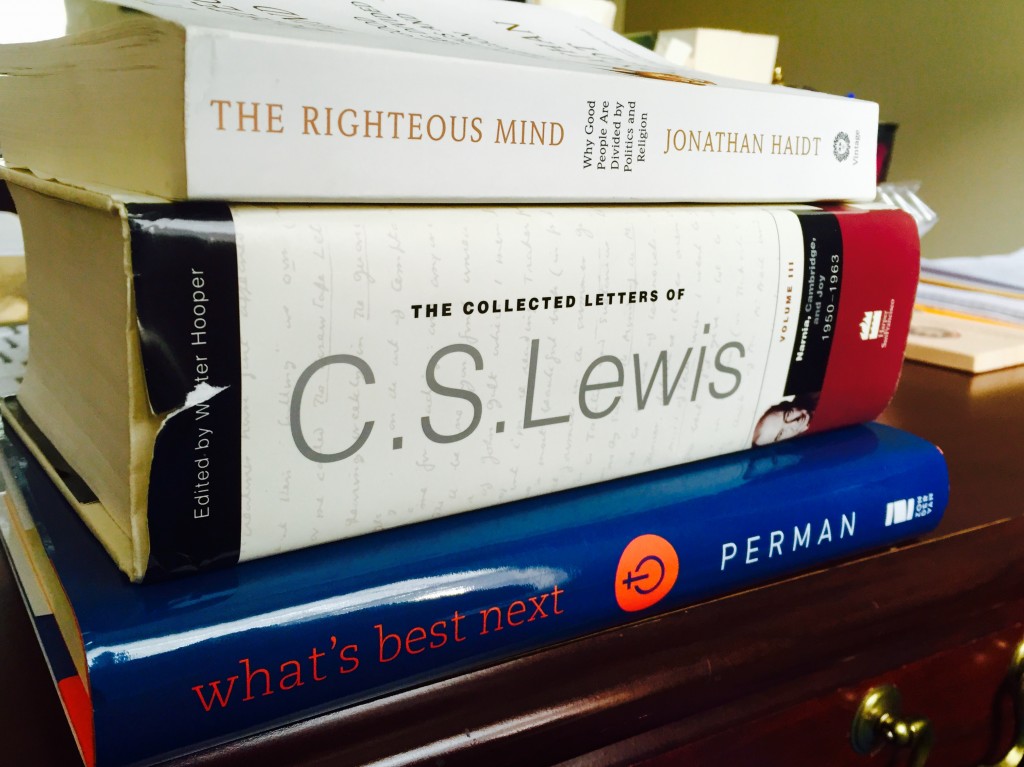I love watching the broadcasted “Prime Minister’s Questions.” Most Wednesday afternoons, David Cameron, the conservative Prime Minister, will field questions from the House of Commons for almost 30 minutes. It is one of the most well known practices of English government. The session includes a 5 or 6 questions exchange with the “Leader of the Opposition,” the MP in leadership of the political party which opposes that of the Prime Minister. These questions are the highlight reel of the entire session, since they are often animated, passionate, contentious, loud and even combative. The Opposition challenges the Prime Minister on ever imaginable aspect of his policy, often using his “question” time to rhetorically ask the Prime Minister to acknowledge or confess the various failures of his government. All the while, the House of Commons sounds exactly like a Barclays Premier League match…cheering, jeering, booing, laughing, and shouting (unlike the BPL, however, the Speaker of the House will rebuke raucous MPs).
It is, as the English might say, a jolly good time.
The English Parliament has a famous history of being, in the words of David McCullough, “political theater.” There is undeniable entertainment value in watching the leaders of a nation exchange verbal volleys. Some may find the sessions obnoxious or immature, and some of the antics probably are just that. But I think the honest argument, in person and face to face, is exactly what facilitates a healthy (if divisive) debate.
What isn’t healthy is online skirmishes, particularly of the Twitter variety. And this week, for the millionth time, I succumbed to temptation and entered a hotly contentious tweetwar. I won’t name names or even describe the conversation, since that would only inspire the kind of eager research that got me into this mud slinging. I will say only that once again, I tweeted a mean spirited, unnecessary and credibility-neutralizing comment at someone with whom I disagreed (and still disagree). Within minutes, I felt a new wash of embarrassment, disappointment, and frustration as I realized I had probably made a fool of only myself, and possibly worse. I deleted the post, but such reaction is illusory: The vast majority of what is posted then deleted is seen by *someone*, and 100% of everything posted online is permanent *somewhere.
I have resolved consequently to resolutely not engage in debates of any sort, on any topic, with anyone on Twitter. Pursuant to that resolution I “unfollowed” several accounts whom I know deal in such argumentation (though they do with honor and respect) so as to limit the opportunity to get sucked in again. That may seem immature, but not nearly as immature as belittling someone through a keyboard.
This is a disappointing and highly problematic personal sin. It’s problematic because it runs in direct contradiction to nearly every biblical command, and immediately alienates people from not only myself but possibly from any truth I may be clumsily shouting. Here I am reminded of Fred Phelps, the notorious “pastor” of Westboro “Baptist Church,” who passed away this week. Phelps was the patriarch of a violently hateful congregation of picketers and protesters whose sole mission was to disparage homosexuals, American veterans, and basically anyone who was in their camp. Phelps is an extreme but sobering example of what a permission to insult in the name of truth can become. Al Mohler is correct in calling the legacy of Phelps an “anti-Gospel of hate.” Phelps descended a spiral of self deception, made possible by the fact that he sincerely believed he was speaking God’s message. Though Phelps was correct about the Bible’s commentary on homosexual sex (though not really, since Phelps repudiated a regenerative doctrine), he took pride in offending and belittling those around him. On no level can you actually say Phelps was speaking the Word of God. To cite Mohler again, Phelps was the master of the “full life of the half truth.”
Again, Phelps is an extreme example. But in this case the slippery slope proves the depth of the fall. By God’s grace I am not a Phelps replica, but I have no doubt that as I typed that hateful Twitter message and pushed send, experienced a kind of twisted euphoria that is not unlike the Westboro variety. There is a perverted satisfaction in imagining someone with whom you disagree, and whom you think is also being uncharitable, wilting in hurt from the force of your zinger. But as Phelps so ably demonstrated, such thrill is supremely irrational, and comes only at the cost of surrendering the issue of truth to the appeasement of ego.
So I renounce Twitterwar because it is deeply problematic for me. But this latest episode is also disappointing, because I do not believe that I really am a disagreeable person. In actuality, in real life conversations and discussions, I tend to placate rather than bloviate. I do not enjoy face to face conflict and tend to get out of a conversation that’s taking a contentious turn.
This awareness raises several important points, but the main one is this: Staring at the object of your upcoming scorn in the eyes is the best rhetorical seatbelt that exists. The “Online Disinhibition Effect” is, of course, well documented. Some of the examples of such behavior are more obvious, such as cyberbullying, “trolling,” and basically everything that happens in the comments sections of YouTube. But the jettisoning of social inhibitions and even basic civility is also a real problem in more serious online communication, such as debates or, my personal favorite, the “Open Letter.” The fact is that it seems so much more difficult to maintain a respectful, polite manner when engaging a username or avatar.
An invisible audience is a dangerous thing. The call to love our neighbor as ourself is a radical call to die to the need for rhetorical triumph, and instead offer ourselves as instruments of truth and mercy, to be trampled on if necessary. To the extent that social media and a smartphone make this harder, we should ask whether or not God has ever intended that humans communicate through a virtual barrier. The experience of human communication–a sacred experience–is not just propositional, but visual, emotional, mental, and even temperamental. Humans are not words on a screen. The truths or lies we proclaim are not just grammatical formulations, but life-altering power. James says the tongue is a fire and filled with all kinds of iniquity; such testimony is doubly relevant on Twitter.
Going back to the example of Prime Minister’s Questions. I am sure that things are said in those sessions which are unkind and ungodly. But I have to believe that a room full of human faces, filled with human noises is a powerful antidote to “anti-Gospels of hate.” Perhaps Fred Phelps became what he was because he saw the world around him as a kind of Twitter feed, with only words and pictures that generated words. There are some who only achieve a sense of survival because they manage to “see through” people as merely sources of right or wrong. But as C.S. Lewis famously observed, to see through everything is the same as not to see. After all, I will one day have to answer some very tough questions from the only Minister who matters.











